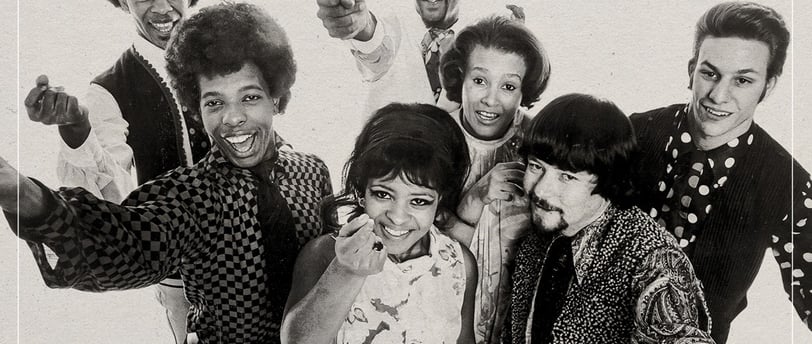The Explosive Rise and Heartbreaking Fall of Sly and the Family Stone: "Thank You for Letting Us Be Ourselves"
Discover the rise and fall of a music legend. Sly Stone redefined funk, soul, and rock, but behind the fame was a battle with success, pressure, and self-destruction. From groundbreaking performances to a heartbreaking final show, this is the untold story of Sly and the Family Stone. Don’t miss the journey of a genius who changed music forever.
FF
3/5/20252 min read


Sly Stone wasn’t just a musician—he was a revolution in sound. His fearless fusion of funk, soul, and rock didn’t just push boundaries; it shattered them. Without him, the electrifying grooves of Parliament, Funkadelic, and CHIC might never have found their voice. Sly and the Family Stone didn’t just make music—they made history.
"Thank you for letting us be ourselves," Sly declared to the crowd after delivering a powerhouse performance. It wasn’t just a closing line or a song title—it was the essence of his entire career. His vision of music transcended race, gender, and genre, creating a band that defied expectations and a frontman who redefined what it meant to be a rock star.
Who else in funk had ever graced the cover of Rolling Stone? Who else could write songs teetering on disco and still be the headliner of a rock festival? Sly did it all, a genius ahead of his time, whose brilliance burned brighter than most.
But success came with a heavy cost. Sly Lives, a new documentary by Ahmir "Questlove" Thompson, explores the highs and devastating lows of Sly’s career. Questlove, who won an Oscar for Summer of Soul, sees a deeper struggle behind Sly’s downfall.
"There’s a fear of winning," Questlove explains. "If you’re too successful, you’re singled out. And for Black artists, being singled out—whether for praise or criticism—can be a nightmare."
Sly’s story wasn’t just about music. It was about the weight of fame, the burden of expectations, and the self-destruction that so often follows greatness. Drugs, broken relationships, and lost friendships consumed him. As Questlove puts it:
"Like so many Black artists, the guilt of being ‘the chosen one’ sets in. Sly was the first domino in a long line of musicians who would sabotage their own success."
The band that once symbolized unity and boundless energy fell apart. Arguments, addiction, and creative tensions tore them to shreds. Their final chapter? A tragic, near-empty show at Radio City Music Hall in 1975—a venue far too big for a band that had already collapsed from within.
The night was a disaster. Sly showed up nearly an hour late, played for just 45 minutes, and delivered a lackluster performance that left fans heartbroken. A scathing review from the time captured the disappointment:
"Not long ago, Sly was one of the most exciting and significant forces in American pop music. But now, he rushes through his greatest hits, ignores his newer work, and drowns the energy of his band in an empty ego trip. It would be easy to dismiss him outright—if only memories of what he once was didn’t make it all so sad."
From icons to an empty stage, the fall of Sly and the Family Stone remains one of music’s most tragic endings. But even in his darkest moments, Sly’s impact never faded. His music still pulses through the beats of today, reminding us of a time when funk wasn’t just a sound—it was a revolution.
Daily Dose provides fresh news and entertainment.
© 2025. All rights reserved.
